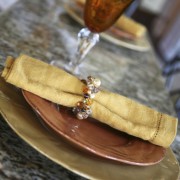Which one should you choose for your next countertop? We have the answers to help you decide.
Let’s drill into both options
Simply put, a granite countertop is quarried directly out of the earth as a single chunk.
Cut into large pieces, it’s then carefully carved into individual surfaces according to your needs and wants.
Quartz countertops are made of crushed quartz and resin. The mix usually consists of 93 per cent quartz and 7 per cent resin. Ask your manufacturer about getting the pattern and colour you’re looking for. There are many options to choose from.
Granite
- You may not be able to get a uniform look (which could be interesting depending on your taste and style). Designed by nature, granite comes straight out of the earth so expect original patterns and variations.
- Granite countertops need to be sealed every year because the material is quite porous, and could eventually show stains.
- Granite countertops are extremely durable. They can basically withstand anything. But remember you’re dealing with rock, which can chip under heavy use. Ongoing maintenance is your friend.
- Expect seams to show once your granite countertop has been installed. There’s no way around this. It’s just the nature of the material, and the way it’s installed.
Quartz
- If you’d like to predict exactly what your kitchen countertop will look like, quartz may be for you. The colour of the surface is more uniform than that of granite. You will, however, still see seams with a quartz counter but they will be less visible if you choose a slab that’s darker in tone.
- A quartz surface is as strong as a granite one but it comes with the added benefit that it’s more flexible (i.e. easier to work with during installation). But quartz is extremely heavy. Just like a granite countertop, it will need to be professionally installed over a strong, supportive base.
- Since quartz is not a porous surface, it never needs to be sealed. Expect virtually no maintenance.
The cost of quartz and granite is similar, but you should take into account the above maintenance requirements before deciding which material is the right choice for your brand new kitchen countertop.









